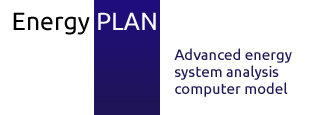@miatorn
Profile
Registered: 2 years, 5 months ago
How to explain gaps Unemployment in your CV:
If you are unemployed for a long time, you should spend it on other valuable activities besides looking for a job. Try to have something useful to show, such as the following:
Further education, training and retraining Cultural or language travel (Preparation for) self-employment Social commitment, voluntary work and honorary work Unpaid internships to help with professional reorientation Self-study to learn specific knowledge and skills If you can provide evidence of such activities like https://editius.com/ using, mention them in your CV - this way the gap does not arise in the first place. A change of career is also a good reason for a longer period of unemployment - but be prepared for explanations in the interview.
In the CV, unemployment is indicated as follows:
01/2020 to 05/2020 - Professional reorientation with the aim of a position as team leader B2B Sales.
Avoid the term "unemployed" in the CV and better use "job-seeking" or "application phase", which sounds more active and goal-oriented.
Tip: Do not give reasons for unemployment It doesn't matter in your CV whether you quit your job yourself or were made redundant - it's also better to mention personal reasons or reason from https://editius.com/proofread-my-paper/ in the interview if they are relevant for the future. Especially after a long period of unemployment, it is important to look ahead.
Illness in the CV:
You should be careful when mentioning illness in your CV. You should not give the employer the impression that there is a high risk of absence - because then your application will be sorted out immediately.
Illnesses that are statistically likely to recur (such as mental illnesses, e.g. depression) or illnesses that negatively affect work performance (a broken wrist as a medical assistant) should be mentioned inconspicuously in your CV. You do not have to specify the nature of the illness, https://editius.com/academic-editing/ can do it for you, if it does not affect the performance of your work or if there is a risk of infection. One-off illnesses that have been cured, such as accidents, operations or cancer that has been fought, can be included in the CV without hesitation. Even more generally, the break can be formulated as follows. However, this leaves more room for speculation and is more likely to lead employers to assume the worst. Be prepared for questions in the interview.
more infornation:
How to rest after school day - Eminetra
Best Email Marketing Tools For Education
Pros and cons of online education – Jioforme
How can a student become a designer? | Axee Tech
Forums
Topics Started: 0
Replies Created: 0
Forum Role: Participant



